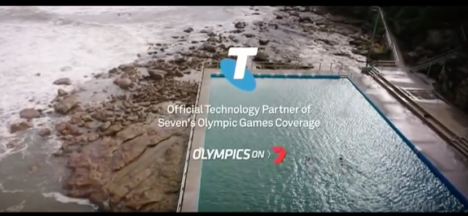Australian Olympic Committee loses fight to stop Telstra advertising Olympic links with Seven
The Australian Olympic Committee has lost its fight to stop Telstra running ads promoting its sponsorship of the Seven Network’s Olympics app in a shock judgement in the Federal Court this afternoon.
The AOC launched the case against the Telstra campaign two weeks ago after it began promoting its sponsorship of Seven’s Olympics app, saying that Telstra was illegally using protected Olympic phrases and trying to suggest it remained a sponsor of the Australian Olympic team a year after it ended its relationship with the AOC.
The AOC said the use of Peter Allen’s hit ‘I Go to Rio’ in the ads was aimed at misleading the public into thinking Telstra continued to be associated with the Games.



I think line 3
the Seven was illegally using protected Olympic phrases and trying to
Should read
that Telstra was illegally….
Hi Stuart,
Thanks for the heads-up, we have fixed that up.
Cheers,
Miranda – Mumbrella
Why is this a “shock” Simon? Did you have contrary legal advice? Telstra is lawyered to the gunwhales. They would have gone over all comms with a fine tooth comb. The Olympic movement doesn’t have unlimited power to ringfence its IP. Telstra has sponsored the telecast and is entitled to publicise that involvement.